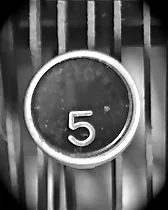5 HOT BOOKS: Trump's (Disturbing!) Twitter Library, Guaranteed Income, and More
/1. The Daily Show with Trevor Noah Presents the Donald J. Trump Presidential Twitter Library, foreword by Jon Meacham (Spiegel & Grau)
“Many people have said I’m the greatest writer of 140 character sentences,” tweeted Donald J. Trump at 4:50 p.m. on July 21, 2014, in the first entry of this brilliantly assembled collection. From its cover image – i-Phone in hand, Trump crossing the Delaware like George Washington – to its last page, this collection of tweets from the “Very Stable Genius” has a cumulatively disturbing quality. It’s organized into sections such as “Sad!: A Retrospective,” “The Nicknames” (disparaging descriptors like “Low Energy Jeb” and “Psycho Joe & Low I.Q. Mika”), and even “Trump VS. Trump” presenting his contradictions on everything from the Electoral College to Syria. As presidential historian Meacham writes in his foreword: “As president, he has raised narcissism to Homeric heights – a difficult thing to do when one recalls that politicians, as a species, consider public notice to be slightly more essential than oxygen.”
2. JELL-O Girls: A Family History by Allie Rowbottom (Little, Brown)
“So easy even a child can do it!” proclaimed an early ad for Jell-O, the gelatinous mix of animal parts and sugar invented at the turn of the 20th century in upstate New York that became “America’s Most Famous Dessert.” The white cardboard boxes with the colorful bagged granules were the building blocks for an empire, and Rowbottom, a descendent of the Jell-O fortune of packaged domesticity and efficiency, has written an insightful cultural history of the era, framed by the women who lived in the shadows of the “Jell-O curse.” In sharp contrast with the brand's tow-headed mascot in a polka dot dress, Rowbottom talks tough about the wealth and power that accrued, the family curse that was cast, and the fate of Jell-O's once-thriving home town, including a 2011 mass hysteria in which high school girls developed a mysterious twitching disease, an apt metaphor for the emotional and cultural upheaval exemplified by this sweet, colorful, jiggling dessert.
3. Give People Money: How a Universal Basic Income Would End Poverty, Revolutionize Work, and Remake the World by Annie Lowrey (Crown)
The title of Lowrey’s fascinating book says it all: government provides a basic livable income and improves society. The universal basic income (UBI) idea has been around for centuries – think John Stuart Mill – and this clearly articulated, well-argued, and stylishly written book provides some traction for the idea. No manifesto, Lowrey’s book is deeply reported, with case studies from places in Mexico, Brazil, and India where UBI has improved the lives of poor people but not discouraged them from seeking a job. Closer to home, she examines the Eastern Band of Cherokee Indians who receive payouts from tribally owned casinos. Critics argue there are downsides to separating income from work and question if UBI is too expensive to ever be practical, but as this debate picks up steam Lowrey's book will be a deeply engaging and insightful part of the discussion.
4. Indianapolis: The True Story of the Worst Sea Disaster in U.S. Naval History and the Fifty-Year Fight to Exonerate an Innocent Man by Lynn Vincent and Sara Vladic (Simon & Schuster)
Although the USS Indianapolis was instrumental in the American victory at Iwo Jima, it was better known as the heavy ship torpedoed by a Japanese submarine in an episode in which nearly 900 men perished, and the Navy blamed Capt. Charles B. McVay III for the tragedy. This gripping book by Navy veteran Vincent and documentary filmmaker Vladic vividly captures how many of the survivors of the explosion endured four hellacious days fighting to stay alive in the water, and tells the story of the captain who was wrongly court-martialed for the disaster. McVay committed suicide decades before Congress passed a resolution exonerating him, but the authors convey the inspiration and dedication of the men who fought so hard for their commander’s honor.
5. How to Love a Jamaican by Alexia Arthurs (Ballantine)
This distinctive debut story collection features protagonists of Jamaican descent, on the island and in the U.S, mostly as young people struggling to find themselves in the tangle of their roots. Arthurs infuses these excellent stories with melodic patois, and characters from pop stars and athletes to students segue between immigration and return-migration. Arthurs won the Paris Review’s Plimpton Prize for Fiction for her story “Bad Behavior,” about three generations of women in a Jamaican family, and in this and other stories in this wonderful book, Arthurs displays a real talent for exploring the universality of the mother-daughter connection.










